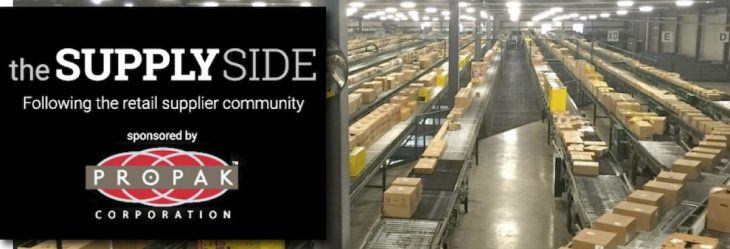The Supply Side: Bucket Technologies ready for retail by mid-January
by January 3, 2019 3:41 pm 1,473 views

In early 2019, consumers across Northwest Arkansas will be among the first in the country to eliminate clunky coin change using digital piggybank software developed by Bucket Technologies.
Bringing the technology to market has been a long labor of love by Francis Hwang, co-founder and president of Bucket Technologies. Hwang said he had the idea in 2003, but he said the technology infrastructure needed to execute the coinless transactions with the security of blockchain was too immature.
“I opted to shutter the idea at that time and wait for technology to catch up,” Hwang said.
In early 2017, Hwang relocated from California to Northwest Arkansas with plans to launch Bucket Technologies. Hwang said the startup had already raised $2.5 million in seed money and really just needed to make the right connections in retail.
“I saw Northwest Arkansas as a great place to launch our venture,” he said. “It is large enough to have all the major retailers we are seeking to work with and [has] the expertise and support for me trying to learn about retail. Since we don’t sell anything, I had a lot to learn about how Bucket would engage with retailer enterprises.”
Bucket Technologies’ software is based in blockchain and is free to retailers and restaurant operators. The service is integrated directly into the point-of-sale (POS) hardware registers, so the cashier merely pushes the bucket button on the register when the cash customer says “bucket the change.”
Hwang said the retail establishments that sign on with Bucket Technologies can eliminate the coins from their cash drawers, reducing the wastes and costs associated with handling coin currency.
He jokes that Bucket Technologies could be seen as one of the world’s dumbest, oddest experiments at first glance. But when looking closer, cash remains prevalent in the world because all economies rely on it daily.
“Coins, however, exist only to service cash,” Hwang said. “Coins are tied to metals like copper, gold, steel, nickel and zinc, and the cost of minting them often exceeds their market value.”

The penny costs about 1.6 cents to mint, and the nickel costs more than 8 cents to put into circulation. Hwang said $100 worth of pennies weighs 55 pounds, and there is a negative impact on oil and gas markets to maintain coin production and movement.
“When consumers pay with cash, the coin change often ends up in a jar at home,” Hwang said. “This is true in 128 million U.S. households today, including me. The average household has $50 to $100 in dormant coins at any given time,” Hwang said.
He said Bucket Technologies seeks to mitigate the societal and environmental risks coins have when they exist in mass.
“In the U.S., there are $70 billion in coins in flight at any given time,” Hwang said. “At the end of each year, $13 billion of that, on average, goes missing. That’s my coin jar at home multiplied by the 128 million households who also have one. Globally there are $500 billion of coins in flight at any time. It’s inflationary if you have to create more and distribute it.”
The mission of Bucket Technologies is to create a digital piggy bank that can follow the consumer around, eliminating the clunky change in their pocket. All the consumer has to do is tell the participating retailer to “bucket the change” when they pay with cash. The customer receipt will show the amount bucketed and provide a QR code, which can be scanned through their phone to activate the account. The retailer’s registers and books are reconciled via Bucket’s software integration.
When the customer’s digital piggy bank reaches $50, they have the option to transfer the funds into their bank account for no charge, redeem for a gift card or donate to a charity. Hwang said there is never a cost to the consumer or the retailer who is using the service.
“The cost for banks to deal with coins ranges from 5% to 13% of their total money expenses,” he said. “We work with Sutton Bank to clear the financial transactions. We are paid based on the amount of coins we eliminate from the banking system.”
JOURNEY TO LAUNCH
Hwang said the launch has taken longer than originally planned. With all the regulatory hurdles now cleared, the company is ready to pull the trigger in early 2019. He said the past six months the company has worked to build relationships with retail establishments, chambers of commerce and charities, who can all benefit from consumers bucketing their change.
“We have been in talks with Walmart Innovation since we got to Northwest Arkansas, through the former 415-C labs in Bentonville,” he said. “We still have to prove ourselves long before we expect to partner with the retail giant, but we are working with lots of other retail operations upon launch.”
Hwang said local eateries such as Bike Rike Brewing Co., Ozark Mountain Bagel and Eureka Pizza will go live with the service upon launch, which is expected by mid-January. The company is also working with Chick-fil-A and 7 Brew Coffee to complete the final integrations into their POS systems.
“We have spent several months introducing ourselves to restaurant operators in the region because the use of cash is higher at these establishments than at grocery retail,” Hwang said. “Still, 40% of the sales at retail in the U.S. are made in cash.”
To date, Bucket Technologies has agreements to offer its digital coin savings program to roughly 50 businesses across the region. Some of the businesses include: Comet Cleaners, Tacos 4 Life, Con Quesos, Fayettechill, Guns & Grounds, The Mustache Goods & Wears, Flying Burrito, Smooth Vapes, The Buttered Biscuit and Oh Baby boutique.
Hwang said Bucket Technologies is eager to launch after months of added regulatory paperwork the company experienced, given its use of blockchain in the financial services realm.
“We have learned a great deal through this arduous process, crossing all the T’s and dotting all the I’s for sure,” he added.
The company has raised roughly $3 million in total funding since inception. Until the company’s services go live, there is no revenue stream coming in, and Hwang said a great deal of the funding has gone to developing the software and covering the regulatory costs. He said the launch in Northwest Arkansas will also be a testing ground, troubleshooting as necessary before the service is scaled further.
“We have found this region is very supportive of startups, and one of our lead investors — CCF Brands — is here,” Hwang said. “We learned more about this region from them. And their investment was not a requirement that we move here, but we are glad we did.”
Editor’s note: The Supply Side section of Talk Business & Politics focuses on the companies, organizations, issues and individuals engaged in providing products and services to retailers. The Supply Side is managed by Talk Business & Politics and sponsored by Propak Logistics.
